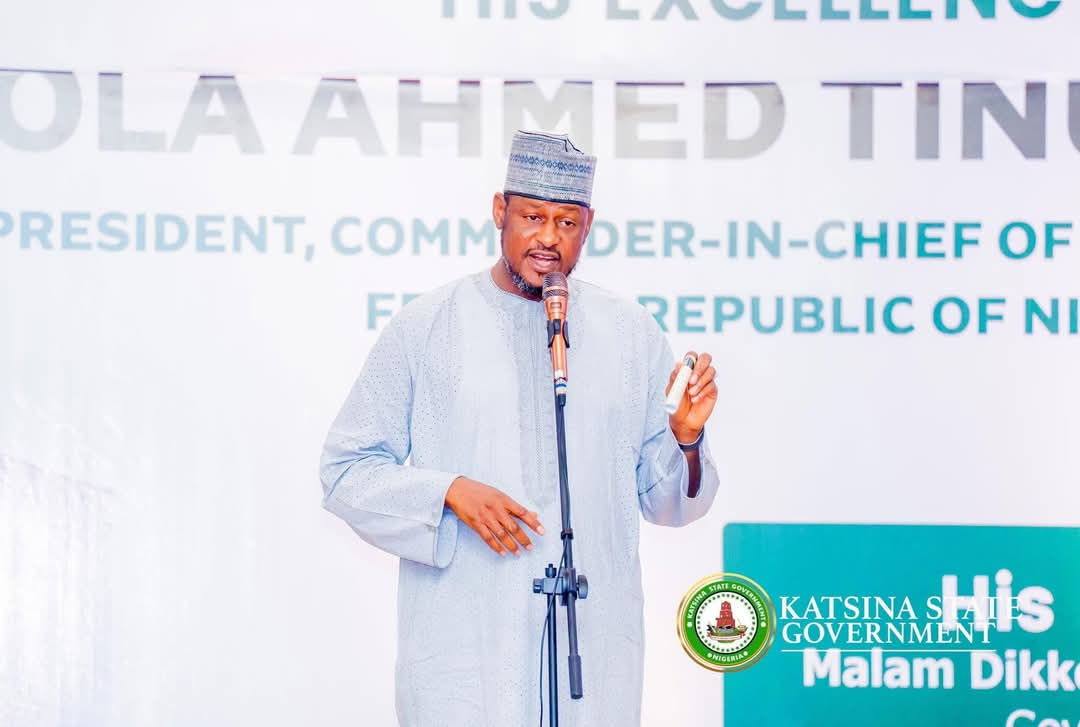Addressing Insecurity Through Emotional Leadership: Governor Dikko Umar Radda’s Transformative Approach

By Engr. Muttaqha Rabe Darma, PhD, DBA
Abba Saude House, Umaru Musa ‘Yar’Adua Way, Katsina
Excerpt from the forthcoming book: “Healing Emotions: Governor Dikko Umar Radda’s Approach to Combating Insecurity in Katsina State”
Introduction
In regions devastated by armed conflict and civil unrest, leadership is often judged by its ability to restore peace and order. However, in Katsina State, Governor Dikko Umar Radda has redefined this framework by addressing insecurity not just as a security issue but as an emotional and psychological crisis. Under his leadership since 2023, fatalities related to insurgency and banditry have significantly declined—thanks in part to his application of emotional leadership as a central strategy. This report explores how Governor Radda has employed emotional intelligence, empathetic communication, and culturally resonant engagement to promote lasting peace and community healing.
Emotional Leadership as a Strategic Response
Governor Radda recognizes insecurity as a dual crisis: one of physical violence and another of emotional trauma. His leadership approach positions governance as both a political function and an emotional intervention. His communications consistently acknowledge the fear, grief, and despair endured by communities, redefining leadership as a source of healing rather than authority alone.
In his inaugural speech, he stated, “We shall secure every ward, every village, not from above but with you.” This declaration symbolizes a paradigm shift—from top-down control to inclusive and participatory security. It validates local agency and counters feelings of helplessness by inviting communities to be co-authors of their safety and stability.
Communication as a Healing Tool
Governor Radda’s emotional literacy is evident in town hall meetings that serve as therapeutic spaces for public dialogue. His consistent use of visualization—such as describing a peaceful Katsina with “restored markets, children in schools, and farmers harvesting without fear”—serves to anchor collective hope and provide psychological recovery pathways.
His speeches do not avoid the grim realities of conflict but instead integrate transparency with hope. Statements like “The issues are vast, but they are not insurmountable” reflect a balance between realism and optimism, encouraging communities to move from despair to active participation.
Key Thematic Approaches in Radda’s Emotional Leadership
1. Community Participation and Ownership
Radda emphasizes that security cannot be outsourced to government alone. During a 2023 Newsnight interview, he stated: “Insecurity will not be solved by government alone; it will be solved by citizens who refuse to let evil find space among them.” This message transforms citizens from passive victims into active agents of peace and resistance.
2. Transparency and Conscious Hope
By candidly acknowledging the scale of challenges while maintaining hope, Radda offers communities a credible and emotionally empowering path forward. His leadership narrative promotes resilience through collective effort.
3. Honouring Sacrifice and Reframing Heroism
At the August 2023 Community Watch Corps event, Radda honoured local vigilantes by calling them “protectors of dreams.” This symbolic elevation of grassroots defenders transforms their stigmatized roles into badges of honour, using narrative therapy principles to reframe trauma into dignity.
4. The Power of Informal Engagement
Beyond formal addresses, Radda’s visits to IDP camps, frontline communities, and vigilante outposts create empathetic bridges between government and citizens. These face-to-face engagements serve as emotional interventions that build trust and inclusion.
5. Physical Presence as Defiance
Governor Radda’s visit to volatile areas like Batsari in November 2023 conveyed courage and solidarity. His message—“I am not here to make promises. I am here to listen. Together, we shall heal these wounds”—demonstrated humility and genuine commitment to community healing.
6. Cultural and Linguistic Resonance
By communicating in local dialects and honouring cultural traditions, Radda ensures that government messaging is not only understood but respected. This strategy dismantles elitism and rebuilds communal trust.
7. Symbolism in Leadership
Through strategic symbolism—white attire for peace, green for growth—Radda reinforces emotional messages. His metaphoric language elevates community actors and fosters collective identity and pride.
8. Linking Emotional Recovery to Action
a. Restoring Dignity through Economic Empowerment
Vocational training and MSME grants targeting vulnerable youth aim to restore personal dignity. As Radda noted, “A youth saved from poverty is a future rescued from ruin.”
b. Justice through Dialogue
Community tribunals focus on dialogue and conflict resolution rather than punishment, reducing the lure of vengeance and promoting healing.
c. A Blueprint for Sustainable Peace
Governor Radda’s strategy reflects psychological insights that unresolved trauma fuels cycles of violence. By validating pain, offering hope, and dignifying contributions, his approach breaks the emotional feedback loop that sustains insecurity.
Conclusion
Governor Dikko Umar Radda’s leadership offers a rare model in which emotional intelligence and empathetic governance drive conflict resolution. In contrast to militarized responses that dominate national security narratives, Radda’s emotionally rooted strategies deliver trust, healing, and sustainable peace. His legacy may be defined not only by physical security but by the restoration of communal dignity and hope. His methods provide valuable insights for peacebuilding efforts across Nigeria and similarly affected regions.

